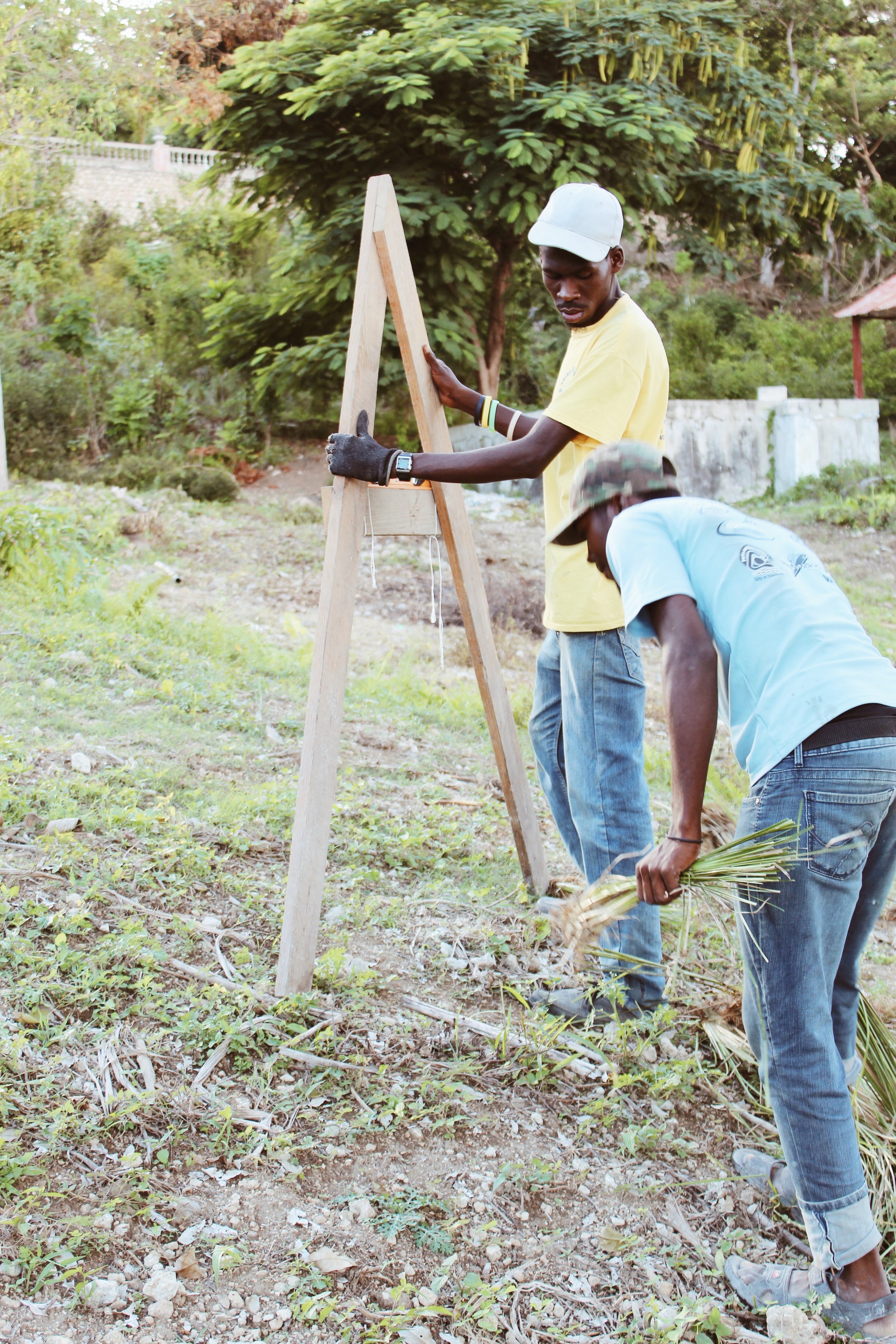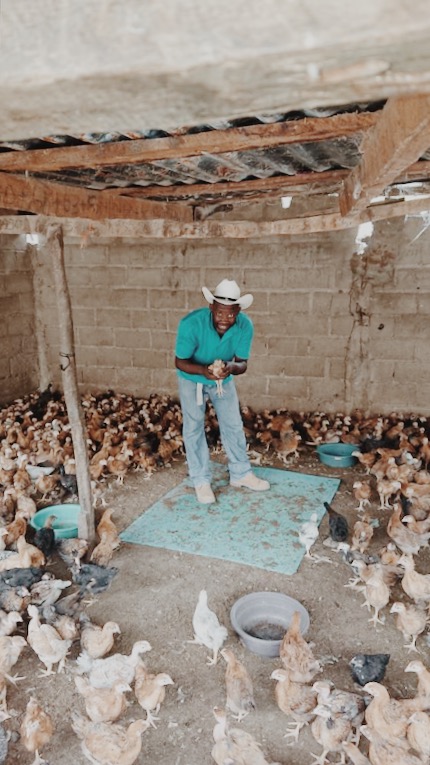Eating Locally : how we are attempting to make that possible in Haiti
At the Haiti Center for Agroecology (HCA), we are focused on educating farmers, equipping them with skills and resources, and ultimately empowering them to be able to produce more food and be less dependent on off-farm jobs, international food aid, and handouts.
Most subsistence farmers around the world, especially in Haiti, do not produce enough food to sustain themselves and their families, let along their local community. Therefore, most folks will work additional jobs, or simply rely on foreign aid. Our results from community surveys in Haiti show that 98% of the communities we work in engage in some form of agriculture, and only 17% of those producers yield enough food to provide sufficiently for their family (average family size is five people). As a result, 71 % of these families have an additional source of income, and as a farmer it is important to be able to focus all of your energies on farming, especially in a rural and developing country where access to automation and machinery to complete simple farm tasks is limited.
Where does Harvest Craft and the HCA come in? We believe there is potential on these farmers’ land to be able to generate enough food for their families and spark the local economy, but a knowledge gap exists. Many of the environmental and biological (e.g. insects, fungal, bacterial) problems these farmers face do not have “contextualized” solutions, meaning they rely on information coming from other areas in the world to try and solve their issues. The inherent problem in this, is that solutions to various agricultural problems do not conform to a “one-size-fits-all” model. There are variations in microclimates, ecological systems, soil type, topography, hydrology, etc. around the globe, let alone just the different regions in Haiti. The HCA exists to educate and empower farmers where they are at; to provide solutions to issues they have, in the context of their production system.
The HCA employs local Haitian agronomists to conduct monthly “farmer meetings” where education is not only done in their native tongue, but in their native soils. These Haitian agronomists have traveled the world and received graduate degrees in vegetable production, climate science and sustainable agriculture. Their passion has brought them back to their local community, to help support their local farmers, in order to promote their local economy. This has a tremendous impact in both the morale of the farmers and their adoption of, what may be, new and alternative practices.
Just this month (May 2019), our agronomists led a demonstration on how to make an organic pesticide/pest repellent from local plants and materials that these farmers have access to. They are now able to manage their pest problems sustainably, with the help of the local biology, instead of imported chemistry (e.g. toxic synthetic pesticides).
As we continue to disperse knowledge, and showcase sustainable production demonstrations, we hope that these farmers will not only adopt these methods, but see a tremendous increase in profits, production, and environmental restoration. Other topics we train on include: soil erosion prevention, water management, biocontrol, nursery production, animal integration, intercropping, agroforestry, and much more. All of which, are topics that have been streamlined to mimic their farming landscape and culture.
So, what is the significance of local education and production? And how does it pertain to you and me where we’re at?
Local agricultural production means a lot of things, but none more than a healthier ecosystem and healthier you. On average, food is traveling hundreds, if not thousands of miles to reach your plate. This cost of transportation is not only being passed onto you as a consumer, but onto our atmosphere in the vast amount of carbon emissions being excreted as it delivers you peaches in the winter, apples in the summer, and bananas all year round. Eating local means mitigating climate change through the reduction of fossil fuel consumption.
But, it also means boosting your health. When we can cut down on the time and distance from harvest to consumption, the food maintains a much higher level of nutrients and all the delicious elements we so enjoy in our food. There is a reason why a tomato grown in your backyard is immensely better tasting (and more nutritious) than the one being picked rock-hard, green in South America and being transported and gassed with ethylene along the way to your dinner plate in the U.S. Eating local means a higher quality of food, and subsequently a higher quality of life.
Lastly, eating local means supporting your local economy and community. In some sense it may appear great to be able to aid in the economic development of many nations by the purchasing the food they produce for us, but this disconnect with our food system and food production has led to its demise. Because you do not see where your food comes from anymore, you have been left to live in ignorance of the poor treatment of your farm workers, animals, and the health of your food with all of the chemicals that are continuously being sprayed on it, not to mention the impact those have on their environment.
A disconnect from your food system, is a disconnect from your community. So, what is the solution? Eat local, and to do this, visit your nearest farmer’s market or seek restaurants that source their food from local growers. By showing up to your neighborhood farmer’s market you can help heal the environment, enhance the quality of your food, and increase the vibrancy, both in culture and economics, of those who live closest to you. You will be engaged in your food system and know so much more about your food, its integrity and safety. As Wendell Berry puts it, you are not just a consumer, but an agricultural participant. Take back your authority and ownership over the food you purchase and enjoy, and do so in a way that supports the health of people and our ecosystems.
As for the HCA, we are hoping to do this here in Haiti. Our hopes in educating the farmers here is to be able to have a lasting and substantial change in this community; one that is holistic, improving their environment, economy, and social equity.




